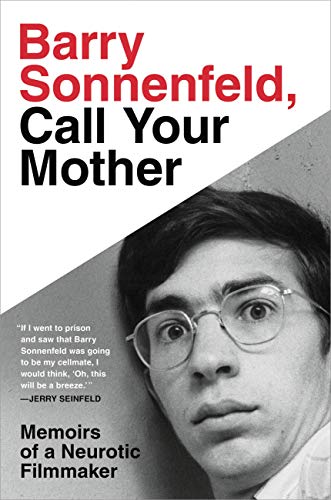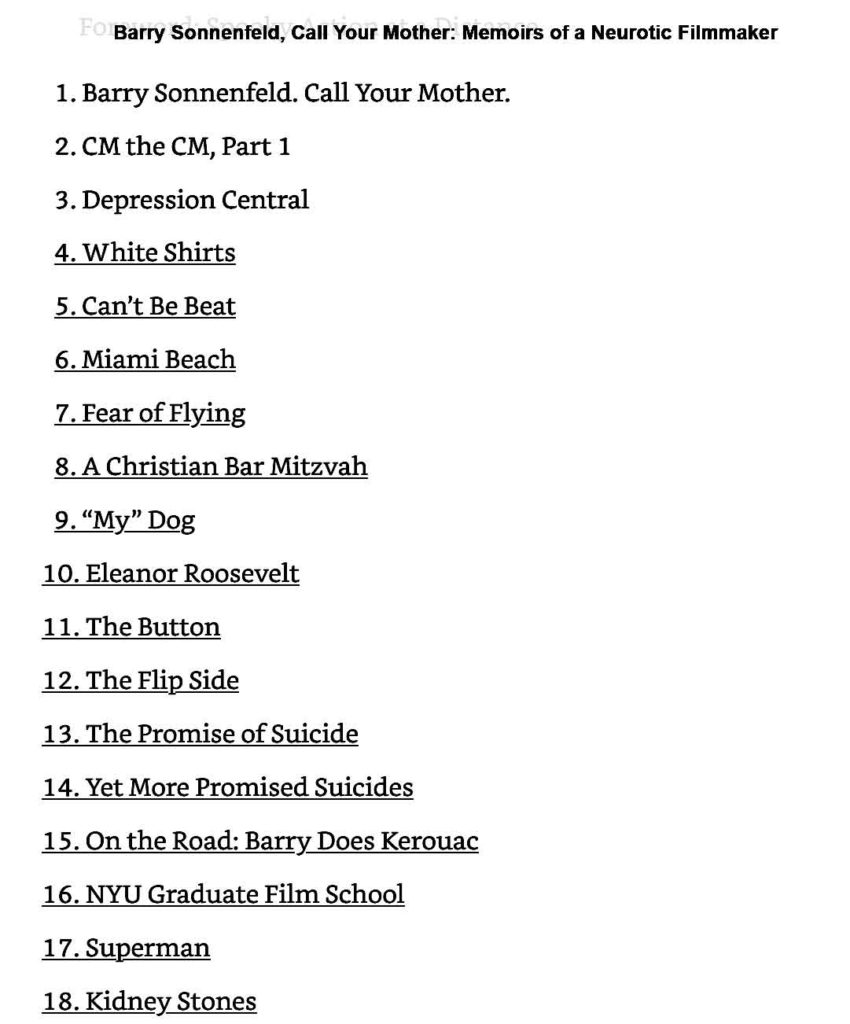 By BARRY SONNENFELD (Hatchette Book Group, Inc.; 2020)
By BARRY SONNENFELD (Hatchette Book Group, Inc.; 2020)
Barry Sonnenfeld is a cinematographer-turned-director whose defining trait, it seems, is self-deprecation. This, his autobiography, is very much in keeping with the life story Sonnenfeld tends to put forth in interviews: that of a happy-go-lucky moron who happened to stumble into making movies. I’d argue that his work as a cinematographer on films like THROW MOMMA FOM THE TRAIN, BIG and the Coen brothers’ first three features, and his direction of GET SHORTY and the first MEN IN BLACK (I’ll politely refrain from mentioning WILD WILD WEST and RV), showcase a skilled and knowledgeable filmmaking sensibility, but it’s the sarcastic and self-hating view that registers here.
…very much in keeping with the life story Sonnenfeld tends to put forth in interviews: that of a happy-go-lucky moron who happened to stumble into making movies.
Of course, Sonnenfeld’s jokiness masks some decidedly unpleasant memories of his childhood in Washington Heights, Manhattan. Most of them center on an individual referred to as Cousin Mike the Child Molester, or “CM the CM,” whose outrages were evidently so horrific that Sonnenfeld doesn’t appear to entirely know how to deal with them. For much of the book he merely alludes to CM the CM’s crimes, waiting until the second-to-last chapter to really delve into what his cousin did—and even then, I suspect, Sonnenfeld holds back a great deal of crucial information.
“Eight months later, Hendrix was dead,” he writes, for which “I blame my mother.”
The book’s other major antagonist is the author’s mother, identified here by her nickname Kelly, a “pathological liar” beset by “insanity,” “fears” and “neediness.” Sonnenfeld’s major beef with her is that she knew about CM the CM’s abuse but did nothing to stop it, later telling her son that “Back then child molesting didn’t have the stigma it does now.” The other, perhaps even more grievous crime she committed is contained in the book’s title: frivolously paging the teenaged Sonnenfeld at the beginning of a Jimi Hendrix concert at Madison Square Garden, an event of profound embarrassment that left him scarred for life (“Eight months later, Hendrix was dead,” he writes, for which “I blame my mother”).
So focused is Sonnenfeld on relating dark and amusing childhood anecdotes that the book’s primary reason for being—the cinematic output of this “neurotic filmmaker”—isn’t nearly as robust as one would expect. Of the “profoundly painful experience” of directing MEN IN BLACK 3, for example, all he really reveals is the promise that “someday I might write about it.” The making of THE ADDAMS’ FAMILY is covered in reasonably thorough detail (with the portrayal of producer Scott Rudin, as a schizophrenic bully who soothes and terrorizes in equal measure, entirely in keeping with what I’ve heard about the man from others), while his brief employment on the set of TANGO AND CASH (1989) is given fairly lengthy (and hilarious) coverage, as are his struggles with director Penny Marshall on BIG and his travails on a late 1970s porno shoot. Regarding THREE O’CLOCK HIGH, MILLER’S CROSSING, FOR LOVE OR MONEY, BIG TROUBLE and A SERIES OF UNFORTUNATE EVENTS, they’re mentioned only in passing (it at all).
The book, whatever its faults, is quite readable. It’s also genuinely funny, proving that even if BARRY SONNENFELD, CALL YOUR MOTHER isn’t as deep or gossipy as I’d have liked, it does at least fulfill one of its author’s primary intentions.

